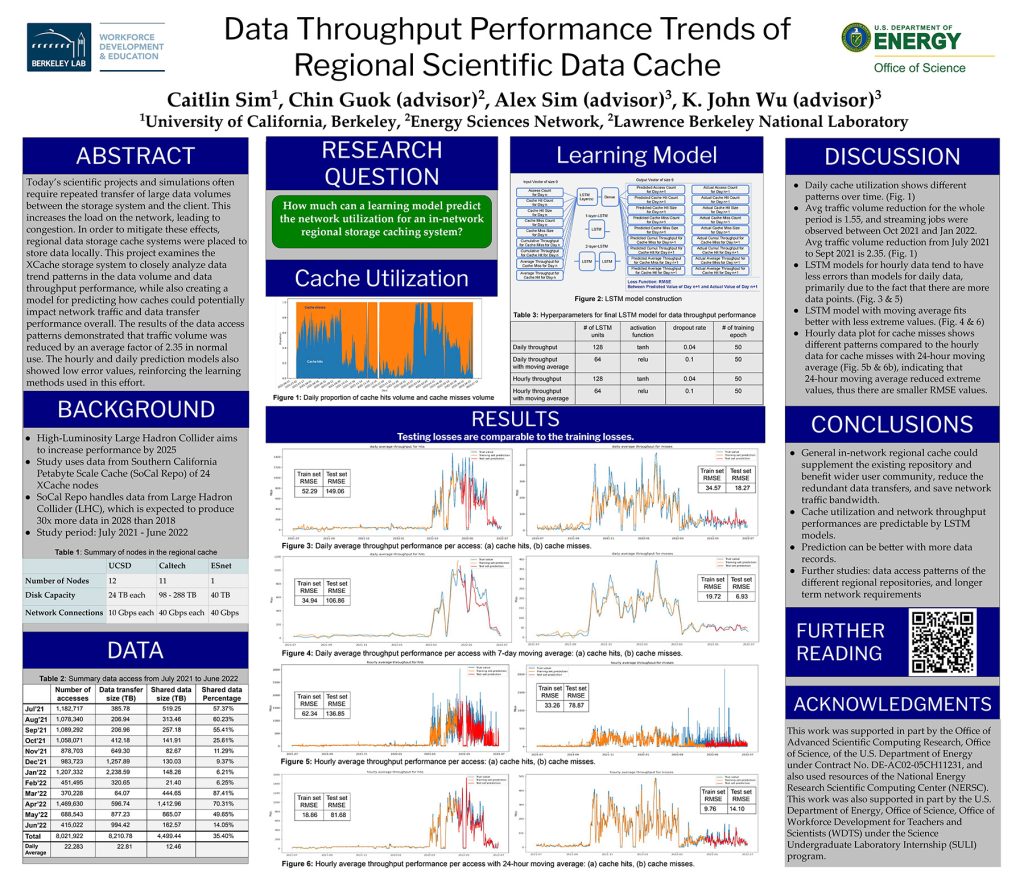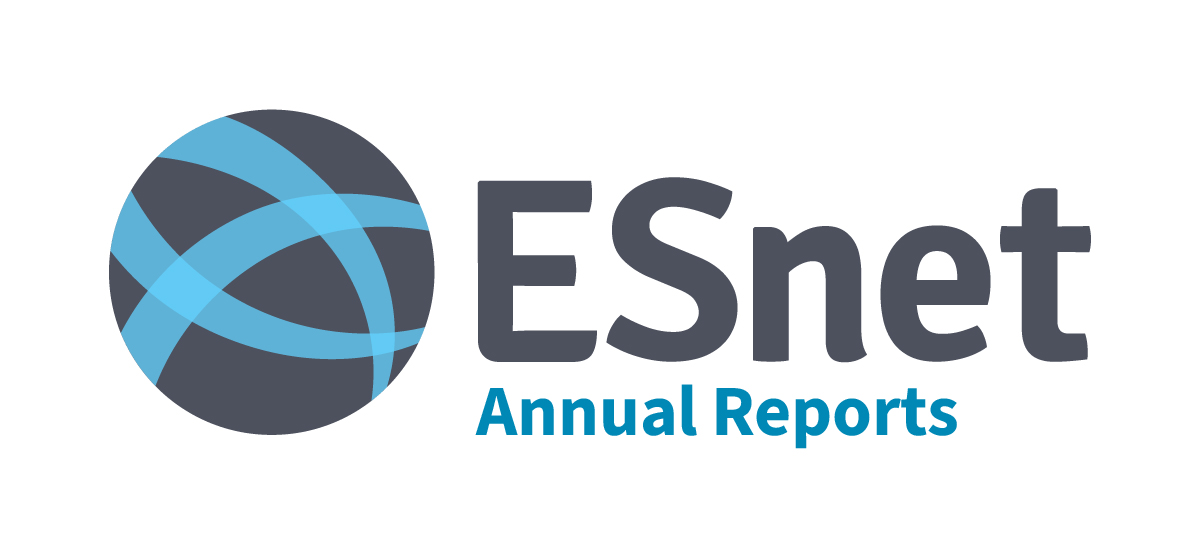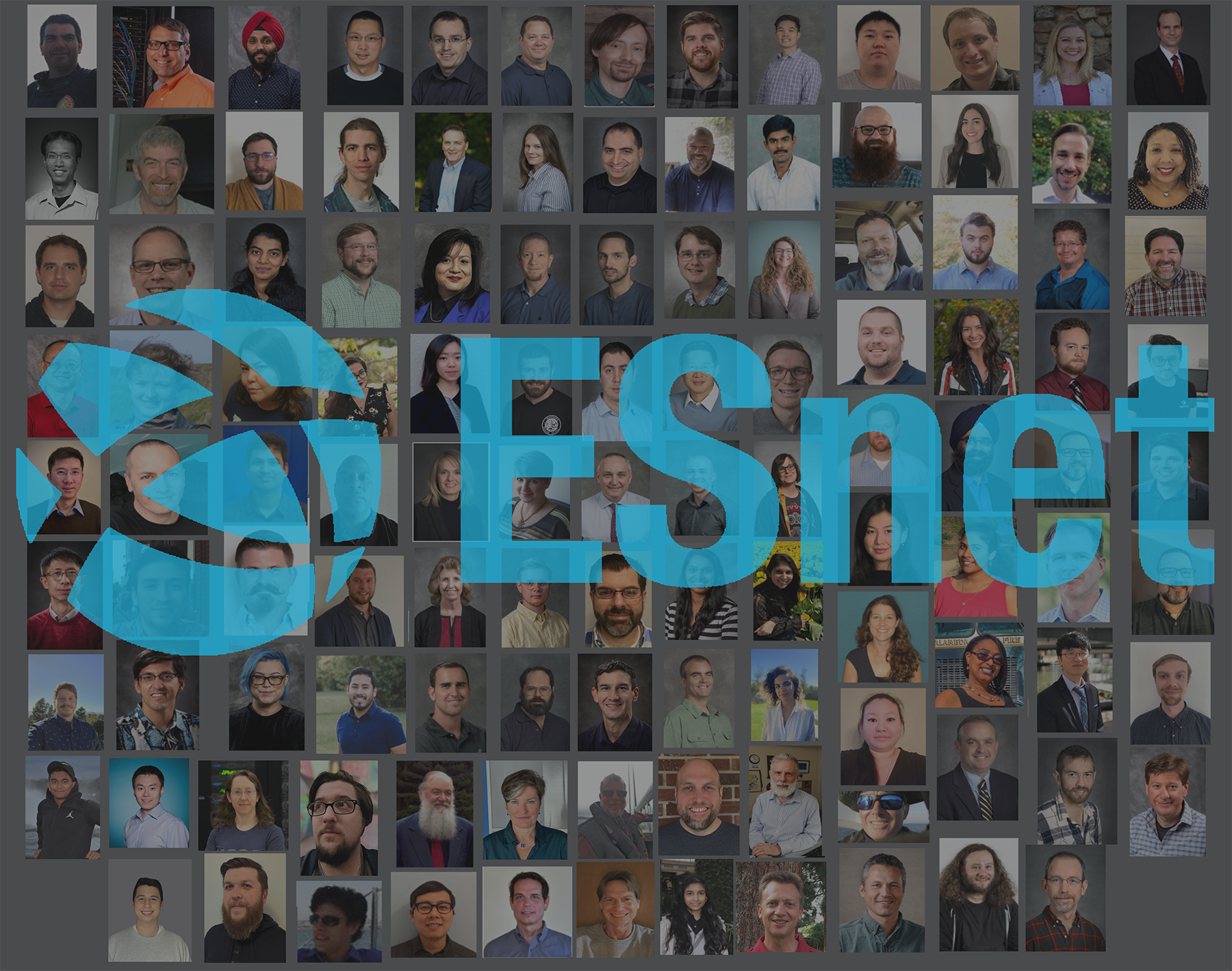
ESnet has almost tripled in size since 2017, scaling up to meet the needs of the ESnet6 project and the future demands of the exabyte era. At the end of 2022, the organization numbered 126 employees and contractors, plus an additional 10 students who worked with us during the year.
ESnet’s organizational structure is continually being reimagined and reconfigured in response to current and anticipated future needs. The group and department structure following the completion of ESnet6 is shown at right, with staff totals as of December 2022.
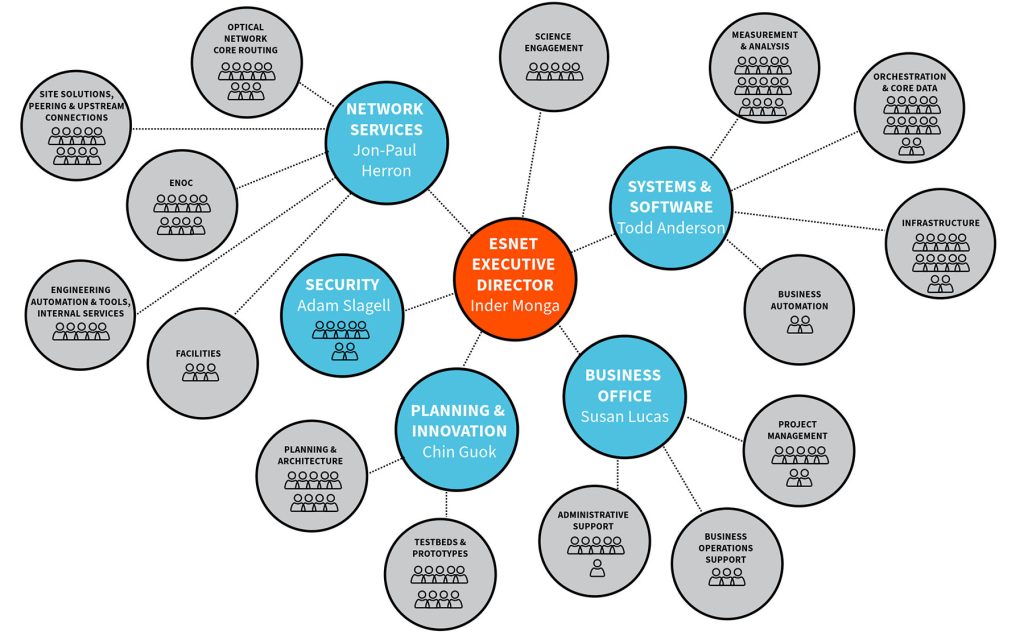
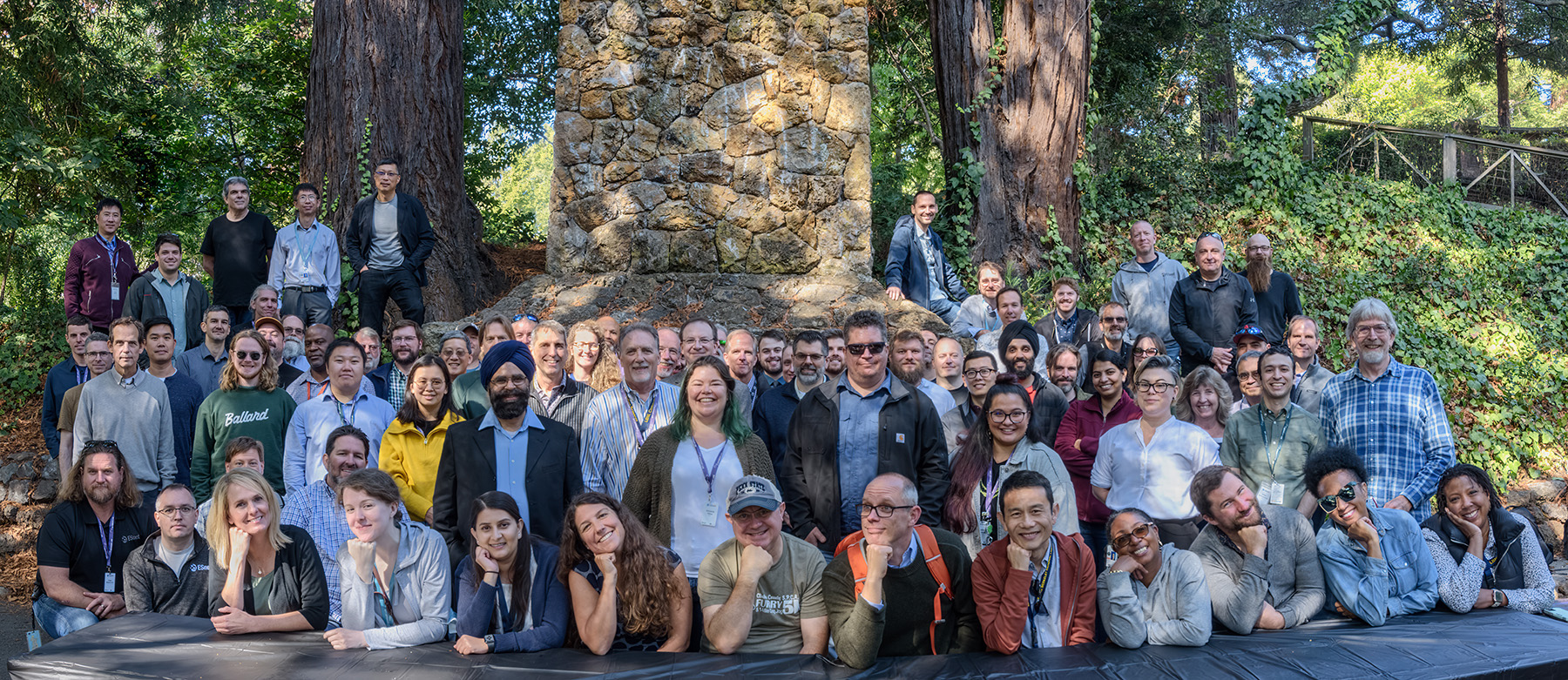
ESnet’s Culture
ESnet has experienced rapid growth while weathering a global pandemic and completing a massive, technically complex project. In 2022, ESnet conducted an organization-wide employee survey. Its results inspired the launch of a new Culture & Engagement Program aimed at further strengthening staff satisfaction and retention rates. Activities included revamping recognition programs, sending a regular staff newsletter, offering training to improve collaboration and strengthen leadership, and planning workshops in which to develop our shared values.
ESnet is proud to be stewarded by Berkeley Lab, which celebrates a rich tradition of multidisciplinary teams working together to bring science solutions to the world that began with founder E.O. Lawrence. We too believe that fostering a diverse workforce — diverse in experiences, perspectives, and backgrounds — and a culture of inclusion are necessary to attract and engage the brightest minds and advance scientific excellence. Berkeley Lab’s IDEA (for inclusion, diversity, equity, and accountability) initiative offers robust new data, training, and opportunities that ESnet looks forward to incorporating further into our hiring, mentoring, and Culture & Engagement activities.
Women in IT Networking at SC (WINS)
For the past nine years, ESnet has co-led a workforce development/diversity initiative at the SC conference, called WINS, for Women in IT Networking at SC. The program, a joint effort between ESnet, Indiana University, the Keystone Initiative for Network-Based Education and Research, and the University Corporation for Atmospheric Research (UCAR), was developed to address the gender gap in information technology, particularly in the field of network engineering.
Through a competitive application process, WINS selects and provides travel funding for early- to mid-career women to participate as SCinet volunteers. They are matched with a SCinet team and a mentor based on skills and interest area, which range from wireless networking to IP routing, from fiber-optic cable installation to cybersecurity. In 2022, ESnet served on the WINS management team, participated in developing the application and selection process, and offered full or partial funding to seven attendees to participate in SciNet code sprint, staging and/or setup, and show activities. The participants came from institutions ranging from R1 research schools to community and tribal colleges. In addition to the 2022 WINS cohort, 13 prior WINS participants — many of whom hold leadership roles on the SCinet team — returned with their own institutional funding to participate in SCinet.
Mentoring Students
Every year, ESnet offers 6 to 12 graduate, undergraduate, and high school students paid internships to work with scientists and engineers to address challenges in high speed scientific networking for 12 to 16 weeks. Some of these students stay on for another semester or return to ESnet later to continue their research.
In 2022, ESnet hosted two Ph.D. students, three master’s students, two undergraduates, and two high school students, including students from the DOE Science Undergraduate Laboratory Internship (SULI) program and the Berkeley Lab Experiences in Research (EinR) program. ESnet staff enjoy the opportunity to mentor these potential and early-career professionals, and to widen the career pipeline in keeping with IDEA’s principles.
